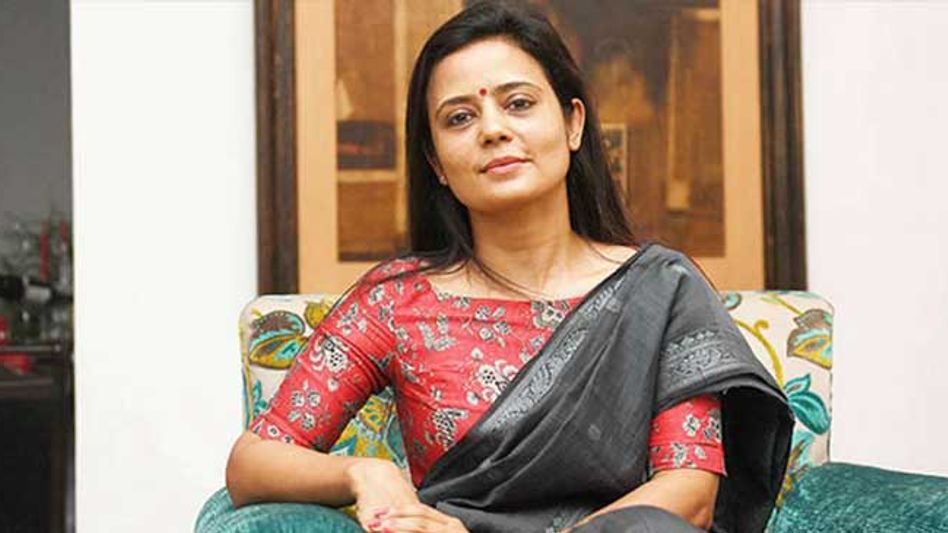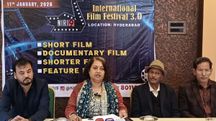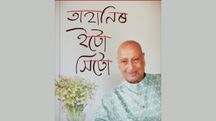A Review on Bodo Film “Jwlwi- The Seed"
 A Review on Bodo Film “Jwlwi- The Seed"
A Review on Bodo Film “Jwlwi- The Seed"Guwahati, December 3, 2019:
Jwlwi- The Seed, the Bodo language film has earned a repute among the cine-goers especially in the Bodo belt. The Bodo belt once considered to be the hotbed of conflict zone has passed through a very dark phase of history in the northeastern part of India in its 90’s.
The storytelling style depicts how the people were encountered with the activities of insurgency and most of the families have their own tell of story in collateral damages.
Director, Writer, and Actor of the film, Rajni Basumatary showing her acumen skilfully, project the protagonist as a versatile character and has nicely played the role of wife, mother, daughter, daughter-in-law, friend, grandmother, mother-in-law.
The film highlights how the common people have been the victim of the conflict especially the women in the trouble-torn region. It tries to portray how the youths become the victim of the social enigma that has riddled in the Northeastern part of India following the ideologies of Mao Zedong and Che Guevara.
The identities, rights, and protection of the indigenous communities have been the bone of contention of the new generation in this part of the world and many youths had wandered and followed the barrel of the gun for achieving it out of distraction and perplexed. The scary night and the raids by the security forces during those days are common and have been nicely plotted in the film. The film also highlights the enforcement of AFSPA and its consequences.
As the name of the film Jwlwi- The Seed is the metaphor to show how the offsprings and new generation need to be protected from various quarters of life. Rajni Basumatary, who acted in the biopic film Mary Kom, as Mary Kom’s Mother has cast as Erakdao's mother with very brilliant acting. Erakdao is a boy who has been studying and her mother Alaari wanted him to get his higher education in the Metros due to volatile situations during those days.
However, Erakdao, the role played by Shimang Chainary whose father has been killed in crossfire, has been influenced by the arms movement and joined the revolution. It depicts how vulnerable was the youths in rural and backward villages. Alaari is an empowered woman ready to accept every challenge in life.
The language used in the film is so flawless and the viewers have enjoyed it. The film could touch the heart of the audience and full the crowds into the cinema halls. The launch of Jwlwi- the Seed at Kokrajhar and Tangla- has drawn a larger audience and in Kokrajhar, other Cinema halls at Guwahati, Bongaigaon, and Dudhnoi follow the suit to show the film. The film has the subtitle in English to cater to larger viewership besides dialogues in Assamese, Hindi, and English. Earlier, it was shown in villages in makeshift theatres. The film was also showcased in International film festivals held at Guwahati (GIFF) and Kolkatta (KIFF) recently. Besides scenes of rural areas, the film was also shot in Thailand.
The Bodo cinema, unlike the Assamese and Bengali, does not have a long history of its own. The first-ever full-length Bodo feature film came to life in the eighties of the last century Alayaran, directed by Jwngdao Bodosa depicting the socio-economic life of the Bodo people. Meanwhile, the first cinematic venture in Bodo language was Diana, the 20 minutes long documentary which was released in the eighties.
The Bodo society is mainly consisting of agrarian and Rajni Basumatary has metaphorically connected the film with the seed and offsprings. The rural landscape, culture, tradition, dress is a unique feature and has the potential resources to showcase through films.
The cinema is the most powerful medium to disseminate information and enlighten people. However, due to lack of cinema halls most of the films could not be screened. Mini cinema halls, touring film, etc. would help for bigger reach to the rural areas. In the early part of the present century, the cost-effective video and VCD films hit the audiences and most of the actors have gained experienced through acting in those films. The Bodo film has the potential to grow, which needs better Film Policy to make it as an Industry.
Support Inside Northeast (InsideNE), an independent media platform that focuses on Citizen-centric stories from Northeast India that are surprising, inspiring, cinematic and emotionally relevant.
Readers like you make Inside Northeast’s work possible.
To support our brand of fearless and investigative journalism, support us HERE.
Download:
The Inside Northeast app HERE for News, Views, and Reviews from Northeast India.
Do keep following us for news on-the-go. We deliver the Northeast.
Copyright©2025 Living Media India Limited. For reprint rights: Syndications Today









